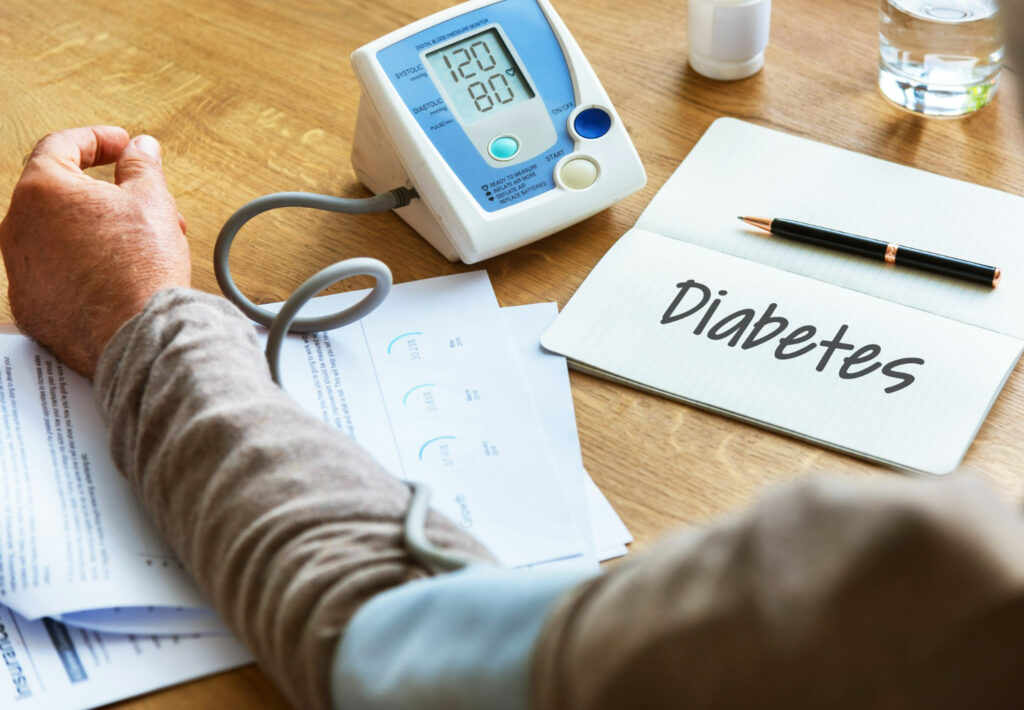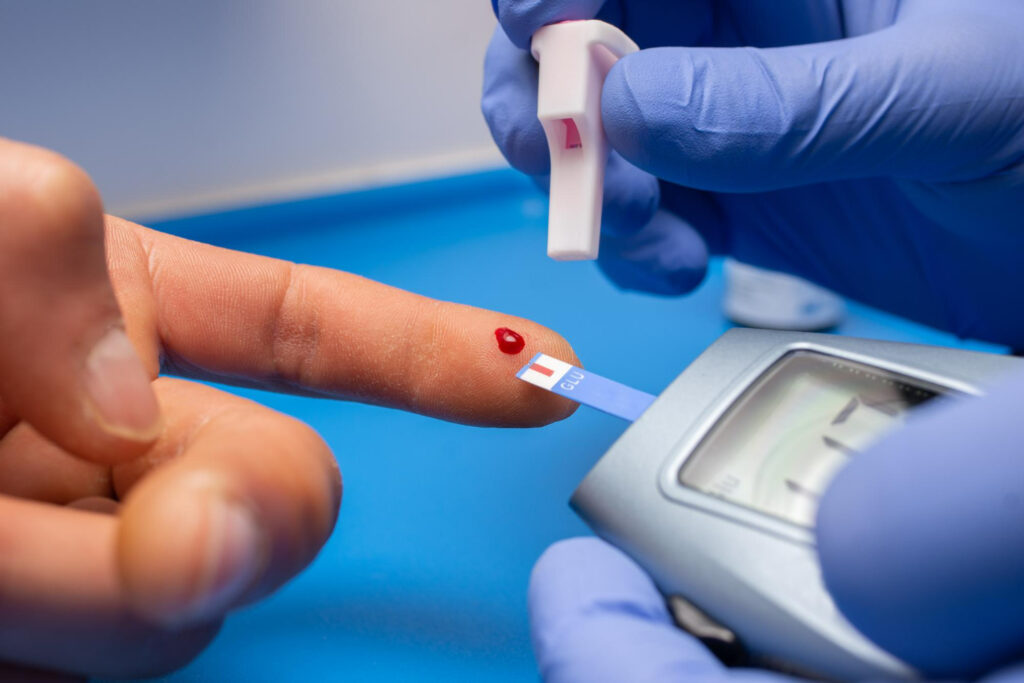The Sweetheart Connection: Does Diabetes Cause Heart Disease?
Table of contents
- Introduction
- Does Diabetes Cause Heart Disease?
- Diabetic heart attack symptoms
- Diabetic heart failure symptoms
- The best diet for diabetes patients and heart health
- Conclusion
- FAQs
- Can diabetes lead to heart attack?
- Can diabetes cause a weak heart?
- Why do heart patients get diabetes?
Introduction
Diabetes may not dampen your spirits, but diabetes-related heart disease might! High blood sugar levels come with side effects that ruin every part of the human body. But if the epicenter of life, the heart, is at risk, then you definitely need to be worried. Does Diabetes Cause Heart Disease? Science says that people with diabetes have a twofold increased risk of heart disease and stroke (blocked blood flow or bleeding in the brain) than non-diabetics. This association becomes stronger with age. However, the best diet for diabetes and heart health accompanied by an active, stress-free lifestyle, can halt this deadly process.
Does Diabetes Cause Heart Disease?
High blood sugar levels, otherwise called hyperglycemia, itself is the cause of heart disease in diabetics. Persistently high sugar levels in the blood boost metabolism in the body’s cells. The amount of metabolism is higher than usual, leading to the accumulation of metabolic products and the formation of free radicals. Free radicals damage the walls of blood vessels like arteries and capillaries; eventually, they also affect delicate nerve tissues. The oxygen and nutrient supply to the muscles of the heart gradually diminish, leading to heart stiffness and dilatation (swelling) of the blood-pumping chambers in the heart. These critical tissue changes result in heart attacks, strokes, and heart failure.
Diabetes increases the likelihood of various other conditions that increase the risk of heart disease in a person. Common heart diseases in diabetics are coronary artery disease (CAD), heart failure, peripheral artery disease (PAD), cardiomyopathy, atrial fibrillation, and stroke.
Let us understand some of these risk factors that also contribute to the diabetes-heart link:
● Elevated blood pressure
High blood pressure forces too much blood to flow through the arteries. A weak artery, such as those found in diabetics, can worsen heart damage and cause problems.
● An abnormally high cholesterol
Plaques made of cholesterol accumulate on the walls of arteries. Deposits further narrow an arterial wall that is already vulnerable in diabetics. This causes a significant reduction in blood flow, particularly to the brain and the heart, which can lead to complications like heart attacks and strokes.
● Obesity
Obesity increases the risk of high cholesterol and blood pressure, as well as fat deposits in the artery walls. These are all warning signs of impending heart disease.
● Sedentary lifestyle
A sedentary lifestyle increases the chance of obesity and hypertension (high blood pressure).
● Regularly consuming meals heavy in sodium (salt), trans fat, cholesterol, and saturated fat
A diet full of fast food and junk is high in sugar, salt, and fat. These could be key players in weight gain and high blood sugar levels.
● Too much alcohol and smoking
Alcoholics and smokers are predisposed to hypertension and high cholesterol levels. Diabetics should avoid these detrimental habits.
● Familial heart disease history
A few diabetics could be genetically prone to heart diseases and congenital heart problems.
Diabetic Heart Attack Symptoms
Patients with diabetes are more likely to experience heart disease, which can cause a heart attack. Diabetics may experience different heart attack symptoms than non-diabetics. But why?
In diabetics, high blood sugar levels frequently result in severe nerve damage. This explains why neuropathies are prevalent in them. Due to similar reasons, all the symptoms of a heart attack seem less severe in diabetics. The associated chest pain is mild, with tightness of breath and sweating. There is a sudden rise in blood sugar that is also noticed.
Diabetic heart failure symptoms
Heart failure doesn’t mean that your heart has stopped pumping blood. It means that the heart is unable to pump blood efficiently.
Heart diseases in diabetics frequently culminate in heart failure. This may cause your legs to swell and cause fluid to accumulate in your lungs, making it difficult to breathe. Other signs could be dizziness, fatigue, and fainting. On examination, irregular heartbeats and heart rhythm are seen (arrhythmia).
The best diet for Patients with diabetes and heart health
It isn’t difficult to manage diabetes, let alone diabetic-related heart disease. If you are in your forties, then it’s time you step up and take good care of yourself. The best diet for those with diabetes and heart disease is one that focuses on whole, unprocessed foods while limiting or avoiding foods that are heavily processed, and high in sugar and fat.
Follow our ABCDE rule of 5 to say bye-bye to “Does diabetes cause heart disease?”
A – Monitor your HbA1c levels 3-4 times a year. Apart from that, at-home glucose testing is vital for diabetics who are on insulin therapy.
B – Maintain your Blood pressure levels.
C – Keep a check on your Cholesterol levels.
D – Do away with sitting and bingeing. Get up, be active, exercise, move around, and lose those extra pounds!
E – Exit from overindulgence. Avoid drinking alcohol too often and quit smoking.
The best diet for diabetes and heart health would include the following:
- While being high in fiber, vitamins, and minerals, fruits and vegetables are low in calories.
- Fiber and nutrients are abundant in whole grains. Examples include brown rice, quinoa, whole-grain bread, and pasta.
- Lean proteins that have minimal saturated fat are good protein options, including fish, chicken, and plant-based foods like beans, lentils, and nuts.
- Healthy fats like olive oil, avocados, almonds, and seeds
- Reduce your intake of processed foods like ready-to-eat mixes, canned foods, and different sauces and spreads. These foods have high levels of salt, sugar, and harmful fats.
Conclusion
Does diabetes cause heart disease? Now that you know that, as a middle-aged diabetic, the chances of you developing heart disease are high, why not be proactive to stop it? You can take steps to mitigate this risk. Apart from the best diet for diabetes and heart health, you should consult your diabetologist periodically to find out any early signs and symptoms of heart disease.
FAQs
- Can diabetes lead to heart attack?
Yes, diabetes can cause heart diseases that lead to a heart attack. High blood sugar makes the blood vessels fragile and inefficient. Consistently poor blood supply to the heart stiffens the heart muscles and forms blood clots that cause a heart attack.
- Can diabetes cause a weak heart?
Yes, diabetes can result in diabetic cardiomyopathy, a condition that causes a weak heart. It can present with symptoms of early exhaustion. Fatigue, gasping for breath, dizziness, and fainting
- Why do heart patients get diabetes?
Diabetes can develop in heart patients due to risk factors that are shared by both, such as obesity, high blood pressure, and insulin resistance. Several drugs used to treat heart problems can also make you more susceptible to developing diabetes.
if you like this article, share it with your friends














